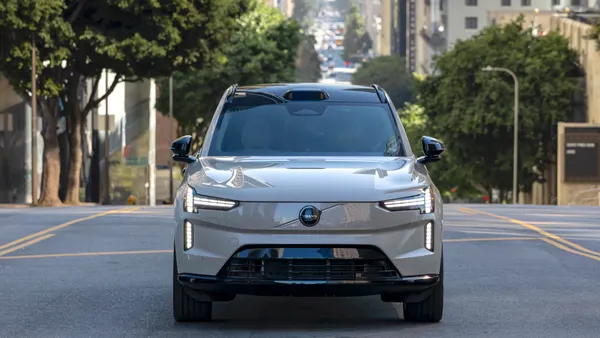Editor's note: This story is part of the WardsAuto digital archive, which may include content that was first published in print, or in different web layouts.
It's a jungle out there, and here's where DaimlerChrysler AG's Chrysler Group is in the food chain, according to Joe W. Eberhardt, its executive vice president-sales and marketing:
“When we began our turnaround three years ago, we were the prey vs. competitors who were the predators. We are no longer the prey, but we're not yet a predator.”
Still, as Chrysler sharpens its claws, some analysts predict Toyota Motor Co. will overtake it in U.S. sales by 2009.
Eberhardt's reaction to that possibility?
“Size doesn't define leadership,” he says. “Southwest is the sixth biggest airline in the U.S., yet it is No.1 in customer satisfaction and profitability.”
Eberhardt says Chrysler was the only domestic auto maker to increase share (0.3%) while earning a $1.8 billion profit last year. Chrysler has vowed to increase sales by 1-million units by 2010.
“But we're not chasing short-term share,” he says.
Eberhardt says he has the “utmost respect for Toyota,” which is why Chrysler has vowed to “stand shoulder-to-shoulder with the Japanese juggernaut in operational excellence by 2006.”
He says Chrysler will use incentives or whatever it takes “to make our dealers competitive.”
But he says Chrysler's dealer ranks of 4,000 is three times Toyota's, “one area in which Toyota does not want to surpass us.”
He sees Chrysler, Jeep and Dodge dealer profits enhanced through “a strategic reduction” of dealerships. “Dealerships in secondary markets will continue to service the needs of those markets, but we have far too many dealers (1,200) in metro areas.”
That position on store numbers worries some dealers. They're asking if the auto maker is unfairly trying to dump them.
“We don't want that and don't need that,” Eberhardt says of their fears.
He says metro stores' numbers could be reduced through swaps, buyouts of dealers “ready and willing to leave” and consolidations.








